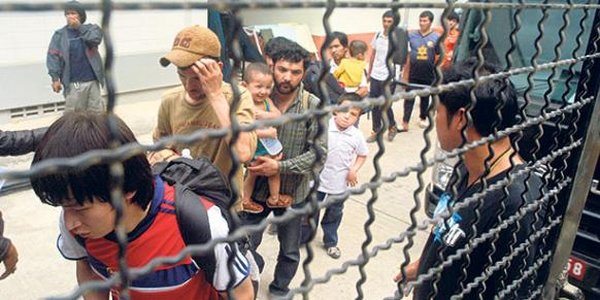The Chinese government is asking Thailand to send back a group of mostly Uighur Muslim refugees that were found by Thai authorities in Thailand’s Songkhla province. The Chinese consul is asking Thailand to repatriate the group, who are offering little information about their identities–although some have claimed to be Turkish–and has dismissed concerns that have been raised about possible mistreatment the refugees might face if returned to China.
“They have been uncooperative and refused to communicate at all,” said Qin Jian, Chinese consul in Songkhla.
The refugees are thought to be fearful of mistreatment if they were to return to China, and have offered little information about their identities. Qin stated that there were no grounds for such concern.
“If they do not have criminal records back in China, there will be no prosecution,” said Qin.
The group of 200 mostly Uighur refugees were found by Thai authorities in March. They are presumed to have been trafficked to a remote camp in Thailand’s Songkhla province. The refugees have claimed to be Turkish, but Qin stated that there had been no confirmation of Turkish identity since the Turkish embassy met with the refugees.
However, dozens of men from the group were identified as Uighurs. Others, Qin suspected based on their appearance, were also Uighur.
The group is currently being cared for at Songkhla detention center.
The Uyghur American Association (UAA), based in Washington, DC, has asked the Thai government to allow the refugees access to the United Nations refugee agency. The group could request asylum of the UN, according to UAA.
“Uighurs have been forcibly returned to the hands of their persecutors in the past with dire results,” said UAA president, Alim Seytoff.
Read more: 2,000 Possibly Killed in Muslim Uyghur Riot in Xinjiang, China
Seytoff said that the increasing number of Uighurs seeking refuge in countries outside of China was an indication of the repression faced by Muslims under the Chinese government.
In recent months, violence in Xinjiang, the westernmost province of China, has left hundreds dead and has seen an escalation in charges for crimes of illegal practicing of religion, separatism and terrorism.
By Sid Douglas
